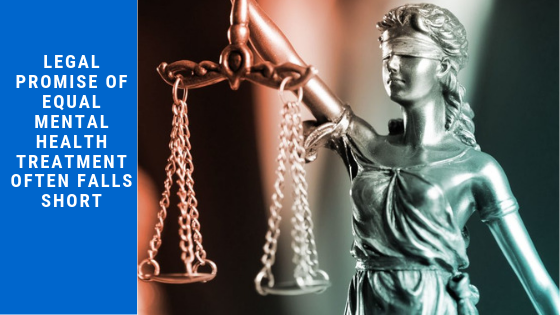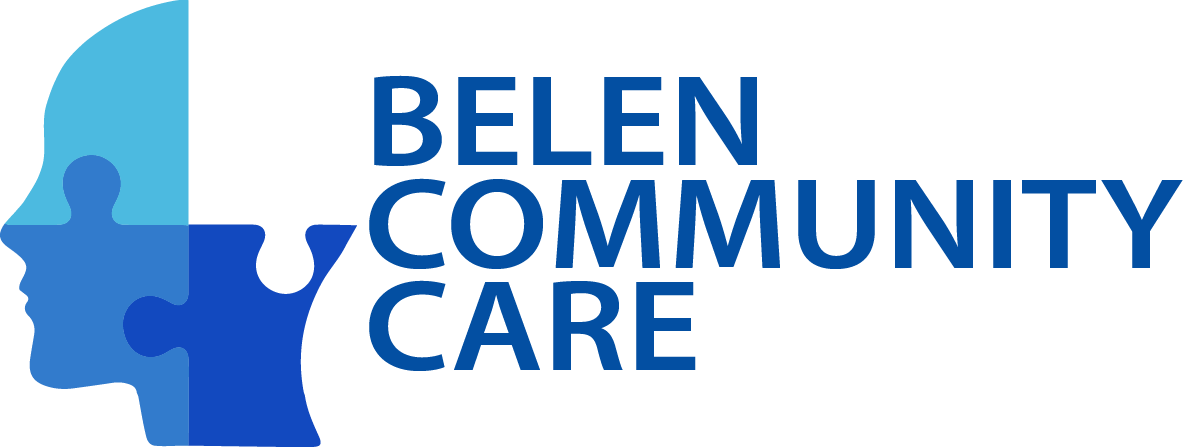
Amanda Bacon’s dietary problem was deteriorating. She had lost 60% of her body weight and was devouring around 100 calories every day.
In any case, that wasn’t debilitated enough for her Medicaid oversaw care organization to cover an inpatient treatment program. She was told in 2017 that she would need to gauge 10 pounds less — putting her at 5-foot-7 and 90 pounds — or be admitted to a mental unit.
“I thought, ‘I’m going to kick the bucket,’” the Las Cruces, N.M., occupant reviewed as of late.
In the long run, Bacon, presently 35, changed to an arrangement that paid for treatment, in spite of the fact that she said it was as yet monotonous to get administrations endorsed.
Numerous patients like Bacon battle to get protection inclusion for their emotional well-being treatment, despite the fact that two government laws were intended to bring equality among mental and physical human services inclusion. Ongoing examinations and a legitimate case propose genuine variations remain.

The 2008 Mental Health Parity and Addiction Equity Act required huge gathering wellbeing plans that give advantages to psychological well-being to put that inclusion on an equivalent balance with physical wellbeing. After two years, the Affordable Care Act required little gathering and individual wellbeing plans sold on the protection commercial centers to cover psychological wellness benefits and do that at levels practically identical with medicinal administrations. (In 2016, equality principles were connected to Medicaid oversaw care plans, which spread most of individuals in that government state wellbeing program for low-salary inhabitants.)
The laws have been halfway fruitful. Safety net providers can never again compose approaches that charge higher copays and deductibles for emotional well-being care, nor would they be able to set yearly or lifetime constrains on the amount they will pay for it. Be that as it may, tolerant promoters state insurance agencies still decipher psychological well-being claims all the more stringently.
“Insurance agencies can without much of a stretch dodge psychological well-being equality commands by forcing prohibitive models of medicinal need,” said Meiram Bendat, a legal counselor driving a legal claim against an emotional well-being auxiliary of UnitedHealthcare.

In an intently watched governing, a government court in March agreed with Bendat and patients charging the back up plan was purposely bamboozling emotional well-being claims. Boss Magistrate Judge Joseph Spero of the U.S. Region Court for the Northern District of California decided that United Behavioral Health composed its rules for treatment considerably more barely than regular therapeutic models, covering just enough to balance out patients “while overlooking the compelling treatment of individuals’ hidden conditions.”
A few investigations, however, have discovered proof of inconsistencies in back up plans’ choices.
In February, analysts at the Congressional Budget Office detailed that private insurance agencies are paying 13% to 14% less for psychological well-being care than Medicare does.
The protection business’ very own information demonstrates a developing hole between inclusion of mental and physical consideration in emergency clinics and talented nursing offices. For the five years finishing in 2017, out-of-pocket spending on inpatient emotional wellness care became about multiple times quicker than all inpatient care, as indicated by inpatient information detailed in February by the Health Care Cost Institute, an examination gathering subsidized by the insurance agencies Aetna, Humana, UnitedHealthcare and Kaiser Permanente. (Kaiser Health News isn’t partnered with Kaiser Permanente.)
Furthermore, a 2017 report by the actuarial firm Milliman found that an office visit with a specialist is multiple times as prone to be out-of-system, and in this way progressively costly, than an essential consideration arrangement.
In this condition, just 50% of the about 8 million kids who have been determined to have misery, nervousness or consideration deficiency hyperactivity issue get treatment, as indicated by a February research letter in JAMA Pediatrics. Less than 1 of every 5 individuals with substance use issue are dealt with and, in general, about 6 of every 10 individuals with psychological instability get no treatment or medicine.
Amanda Bacon, who is as yet accepting consideration for her dietary problem, expected that she wouldn’t get treatment. She was at one point hurried to a crisis space for consideration, yet following a few days she was sent home, no closer to recovering.
Today, in light of her handicap, Bacon’s essential protection is through Medicare, which has paid for treatment that her prior Medicaid supplier, Molina Healthcare, won’t. She has been treated in four inpatient programs in the previous two years — twice through Presbyterian Centennial Care, a Medicaid plan she changed to after Molina, and twice however her present Medicare plan. Bacon is likewise selected a state-run Medicaid plan.
Labeled ACA, Affordable Care Act, inclusion, differences, protection, safety net providers, Joseph Spero, Medicaid, Medicare, psychological well-being, Mental Health Parity and Addiction Equity Act, equality, United Healthcare
Leave a reply











Leave a reply